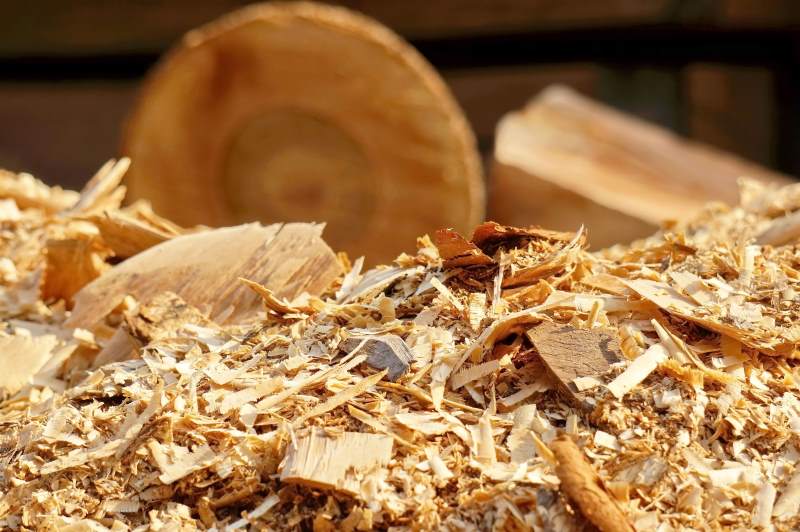For decades, old car and truck tires have dotted the landscape. Tossed in scrap heaps and buried in landfills, they pose a significant environmental hazard. In the last 50 years, the tire disposal problem has risen to the forefront of environmentalists’ minds. Tire recycling is growing in popularity both for its environmental impact as well as its profitability as a business model.
As more uses for the recycled rubber are discovered, the demand for it increases, enabling recyclers to produce and sell more product. With roughly 290 million tires being discarded in the United States every year, the tire supply is plentiful, making now the perfect time to start your own tire recycling business.
The idea sounds great on paper, and while you may know a lot about tires, there may still be a steep learning curve and a significant investment hurdle to overcome. If done right, however, tire recycling can be a very profitable business.
Before you jump in with both feet, you should understand the waters into which you are treading. Become educated about the business first. If you really want to know how recycling works, apply for a position at a recycling plant. Learn all you can about the business and the process from start to finish. This experience will give you a sound knowledge base from which to start.
Every Business Needs Customers
Tire recycling can only be profitable if you can identify both the supplier and customer. The supplier will work on the front end to get you the raw rubber you need for processing. The customer on the back end will buy the processed rubber product you produce.
Sourcing Tires
Ideally, your suppliers should be located within a 150-mile radius of the location where you plan to set up shop. If they are any farther away, you will end up wasting time and money collecting old tires. The best way to get tires from point A to point B will depend on who your supplier is and how quickly the tires stack up at their location. A few different options to explore include:
1. Offer a Pick-up Service – A small car repair shop may only generate 20 passenger tires every two weeks. This small load can easily be picked up in a van or truck regularly, making recycling easy for the customer.
2. Deliver Disposal Containers – For larger volumes of tires, you may consider dropping off an empty dumpster to be picked up when it is full. This option makes loading and transportation easier for larger loads. It is especially helpful for larger diameter tires, as they are difficult to load and unload by hand.
3. Offer Onsite Drop-Off – There will always be do-it-yourself-ers that like to change their own tires. Designate an easily accessible spot on your property where small loads can be dropped off.
Selling Recycled Tire Products
Most recycled tire rubber does not find its way onto the playground as you might expect. In fact, most recycled tires are actually burned as tired derived fuel (TDS). Unless you have a paper mill or cement plant nearby, TDS may not be in high demand in your area. You will need to take a hard look at the market around you to find your niche.
Because of the high up-front costs associated with buying equipment, securing land, and hiring employees, it is best not to try to be a jack of all trades right out the gate. Find an area where demand is high, and competition is low. Potential clients could include utility companies, construction contractors, athletic fields, and manufacturers. Ground rubber and crumb rubber are commonly used to manufacture many products that were once made exclusively of wood, asphalt, or plastics.
Have a Plan
Once you are satisfied that the market can support your growing new business, creating a detailed business plan is the next essential step. The initial investment to begin recycling tires will likely require either a small business loan or outside investors’ assistance. In either case, you are unlikely to receive financial aid without a solid plan to pay back those loans.
If this type of loan is out of reach, you might apply for a government grant. Grants at the federal level are limited but are available through the Small Business Innovation Research Program (SBIR). This Environmental Protection Agency (EPA) Program awards funds to proposals that tackle high priority EPA issues. Solid waste management involving waste tire removal and disposal is one such issue. However, grants are limited to small businesses with less than 500 employees and come with the requirement that the company demonstrates innovation in technology and commercialization of their efforts to improve the environment.
Funds are also available to support the efforts of waste tire recyclers and innovators alike at the state level. In 1999, the North Carolina Department of Environment and Natural Resources granted Continental General Tire $1.2 million to fund their research into manufacturing tires using 25% recycled rubber. The project’s goal was to reuse the old rubber to make new tires without compromising the quality or longevity of the new tires.
In 2002, the Ohio Department of Natural Resources awarded $1 million in grants to five different waste management businesses to fund projects recycling shredded tires for use as tire-derived fuel, as well as landscaping and building projects. Check with your state to see if funding is available for research or tire clean-up projects before you take out hefty debts to start your business. You may be able to find money in unexpected places.
Licenses, Permits, and Insurance
Last but certainly not least, make sure that your business is operating safely and legally. While the requirements vary by state, there are regulations in every state that you will need to comply with to operate a tire recycling business. Contacting the EPA, as well as local government entities, early in your planning is essential. Be sure to apply for licenses early on to have them on hand when you are ready to open your shop for business. For the safety of employees and your investment, you should also have adequate insurance to cover any unfortunate incidents that may occur.
Passenger and truck tire manufacturers and distributors make up a large sector of our economy. Indeed, we are dependent on tires for transporting goods and people all across the country. This dependence has led to an abundance of waste. Until recently, we struggled to find a solution to this growing problem. With the emergence of new technologies in recycling and reuse of these rubber products, the present is a great time to jump in and be a part of this expanding new business market.
Interested in getting started? Contact ECO Green Equipment to find out more about our turnkey tire recycling solutions and integrated equipment. Our tire crushers, grinders, shredders and colorizers are revolutionizing the market by processing waste tires faster and with greater cost and energy efficiency than the competition.




